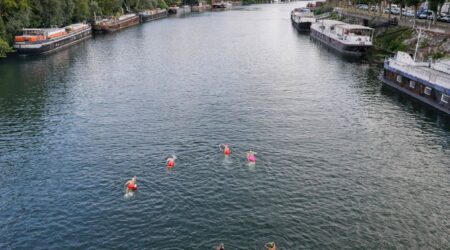Secret plot to invade Malaysia’s Sabah hatched in Philippines: Source

A secret meeting to discuss plans to send an armed militia to invade the Malaysian state of Sabah on Borneo island is believed to have been held by a senior local government official in the southern Philippines, a senior regional security source has told This Week In Asia.
The Dec 1 meeting was conducted by a locally-elected official of Sulu province, who gathered 19 mayors of the Sulu Archipelago to discuss plans to set up a “Royal Sulu Army” with a target of recruiting up to 600 men to invade Sabah, the source said.
The sovereignty of Sabah is the source of a long-standing dispute between Malaysia and the Philippines.
In the Philippines, feelings are especially strong in the Sulu Archipelago, from where previous failed attempts to invade have been launched.
“The potential of the plan to attack Sabah coming to fruition depends on how much political support and funds it can get from various parties,” the source said. ”
Many stakeholders in the Philippines and abroad are willing to exploit this issue for their respective political and strategic interests.”
The source said February 2022 was seen as the best time to invade. That time was likely to have been chosen to “commemorate” an invasion of Sabah eight years ago by fighters from Sulu, the source said.
“The failure of the heirs of the Sulu Sultanate to obtain the consent of the Malaysian government to settle the proprietary rights over Sabah prompted the implementation of this plan,” said the source.
In February 2013, Sabah was rocked by the – ultimately unsuccessful – invasion of over 200 armed followers of the Philippines’ self-proclaimed Sultan of Sulu, Jamalul Kiram III.
The men were led by the sultan’s brother, Agbimuddin Kiram, who had come to press an ancestral claim over Sabah. Malaysia responded by sending troops and launching air strikes before the stand-off ended.
The conflict, which lasted more than a month, resulted in the deaths of 68 men from the Sulu sultanate, nine Malaysian armed services personnel and six civilians.
Of the 19 mayors who attended the secret meeting, 11 agreed to the plan while the rest sat on the fence, neither agreeing to nor rejecting it.
“Each mayor is expected to provide 50 men who are skilled and brave in battle. The cost of ammunition and other logistics is to be borne by the high-ranking official who also promised to contribute 500,000 pesos (S$13,600) to build 100 speed boats that will be used to attack Sabah,” the source said.
The source said that according to the plan, the local official was believed to have supplied 500 firearms to local representatives in Sulu who would then distribute them.
The source said 150 to 200 spies from Sulu were expected to be directed to Lahad Datu and Semporna – two key coastal towns where an invasion force might land. In the 2013 invasion, forces landed at Lahad Datu.
“All the Sulu soldiers entering the waters of Lahad Datu and Semporna will be bringing in firearms [according to the plot],” said the source. “All the firearms will be buried in an area before being used to attack the targeted area.”
However, the source added that “no one” had infiltrated Sabah – but warned the Sulu plotters had “sleeper cells” there.
The security source said intelligence gathering and security had been stepped up in Sabah since the discovery of the Sulu meeting.
Rommel Banlaoi, chairman of the Philippine Institute for Peace, Violence and Terrorism Research, said the Royal Security Force of the Sultanate of Sulu and North Borneo had around 20 to 30 regular armed services personnel.
However, it was “capable of mobilising up to 500 Tausug armed men as force multipliers”, Banloai said, referring to the dominant ethnic group of Sulu.
Banlaoi said the Tausugs had an enduring desire to invade Sabah.
“The intent will not disappear because everyone in Sulu has spread the narrative to the young generation that Sabah belongs to the Sultanate of Sulu,” Banlaoi said.
Zachary Abuza, professor of Southeast Asia studies at the Washington-based National War College, put the strength of the Sulu Royal Security Force at up to 235 men during the 2013 invasion.
However, he said they were poorly trained, lightly armed, and extremely misguided men under the sway of the self-declared sultan.
“Jamalul Kiram died in 2013. His daughter continues to lay claim to Sabah, though it is unclear whether she has any armed supporters or resources to raise a force,” said Abuza.
Philippine President Rodrigo Duterte continues to claim Sabah as sovereign Philippine territory.
In 2016, Duterte vowed to pursue the country’s claim to Sabah, saying he recognised the claim of the Sultanate of Sulu, which used to rule over parts of the southern Philippines and Sabah, before the British government transferred Sabah to the Federation of Malaysia in 1963.
In 2019, Philippine Foreign Secretary Teodoro Locsin Jnr reaffirmed the Philippines’ claim over Sabah during a congressional budget briefing.
“We shall never have an embassy in Sabah. To even think of it is an act of treason,” Locsin Jnr told the House appropriations committee.
Abuza said that given the history, no Philippine politician could afford to renounce the claims on Sabah as doing so would undermine their “nationalist credentials”.
The Tausugs have a long-standing claim on Sabah, which they say was seized by the British from their government. Sabah was ceded to the British by the former colonial power, Spain, in the Madrid protocol of 1885.
Malaysia has always rejected the Philippine’s claims on the grounds that Sabah residents had exercised their right to self-determination when they voted to join the Malaysian federation in 1963.
However, it has since emerged that the Malaysian embassy in the Philippines was issuing annual cheques for 5,300 ringgit to the legal counsel of the heirs of the Sultan of Sulu in keeping with the terms of an 1887 agreement. The payments stopped in 2013.
While Malaysia considered it as cession payment for the disputed state, the sultan’s descendants considered it “rent”, television news network Astro Awani reported in 2013.












Leave a Reply